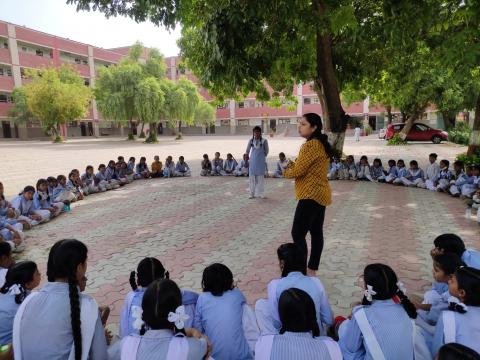
From learning to learning experience
In the last week, I had a chance to go through a number of YouTube videos related to educational content. Around 2 years ago, I wrote that the age of super teachers has come. And I am surprised to find many such teachers on YouTube. Their videos are seen by millions of students. An ordinary teacher interacts with approximately 10,000 students during his entire career. Super teachers reach millions of students. With the help of technology, their content delivery mechanism is better than a normal classroom teacher. Since there are many super teachers available on YouTube, a learner always has a chance to switch from one to another. YouTube videos are generally better at delivering content, barring exceptions, on any topic. It has many advantages; one can watch it at one’s convenience, it can be watched several times, the speed of the video can be controlled and so on. A student who was dependent upon his school teacher just for the delivery of the content, would not require any such teacher in the classroom. The days are over for mechanical teaching where the delivery of the content was the only objective. A student always has a chance to find a better teacher online on YouTube and other online sources.
The impact and importance of the online revolution cannot be ignored. However, we must understand the phenomenon from a broader perspective.
With a better mechanism of online content delivery, school teachers will no longer be required to deliver the content. However, there is no need to worry about this development. Rather, this shall be appreciated by the school teachers. The online content would make them free from the task which was least important in a classroom. They can get the time for the more important activities in the classroom now.
Discussion and Debate
Educational policy has long emphasized a classroom where debate and discussion are encouraged. The phenomena of ‘syllabus coverage’ didn’t allow teachers to engage in such endeavours. Even if they tried, it was just a kind of 'add and stir' system! This will be an opportunity where students would develop the power of logical arguments. They will collaborate and collect evidence to argue. The ideas were always there, but the time for such activities was not available in the classroom. This is the time when teachers can engage in what we call transformative teaching through discussion and debate.
Close and critical evaluation of children’s work.
In the lack of time, teachers couldn’t give enough attention to children’s write-ups. Sometimes, if a child writes an original piece, it simply receives general comments, i.e., very good, very good, etc. It will be an opportunity for the teachers to pay close attention to what children write and they can shape a new generation of writers. It is not just about the write-ups, various other projects and craft works, which were considered secondary activities, would find proper attention from the teachers.
Individualized Attention
It has always been a part of the advertisement of educational institutions, in reality, teachers never find time for individualized attention. Taking the time to listen to the stories of her students is one of the greatest services a teacher can provide to them. Particularly in the urban environment, we lack a family structure that allows children to express how they feel and think. Teachers can provide the most precious and safe space for expression. Earlier, they didn’t have time for it, but now they can.
Think about a school where your child walks in, a classroom full of opportunities for debate and discussion, the teachers write elaborate feedback on the assignments, and one day, your child's teacher tells you that he knows more about him than you do. Don't you think this school will be a place where your child will crave to attend every morning?
A wide range of motor skills can also be learned and opportunities in the arts and athletics can be provided. Schools need to be designed with a theme where learning of content would no longer matter, but learning experiences would. Are we ready to design our classrooms to give students a learning experience?
- Log in to post comments
